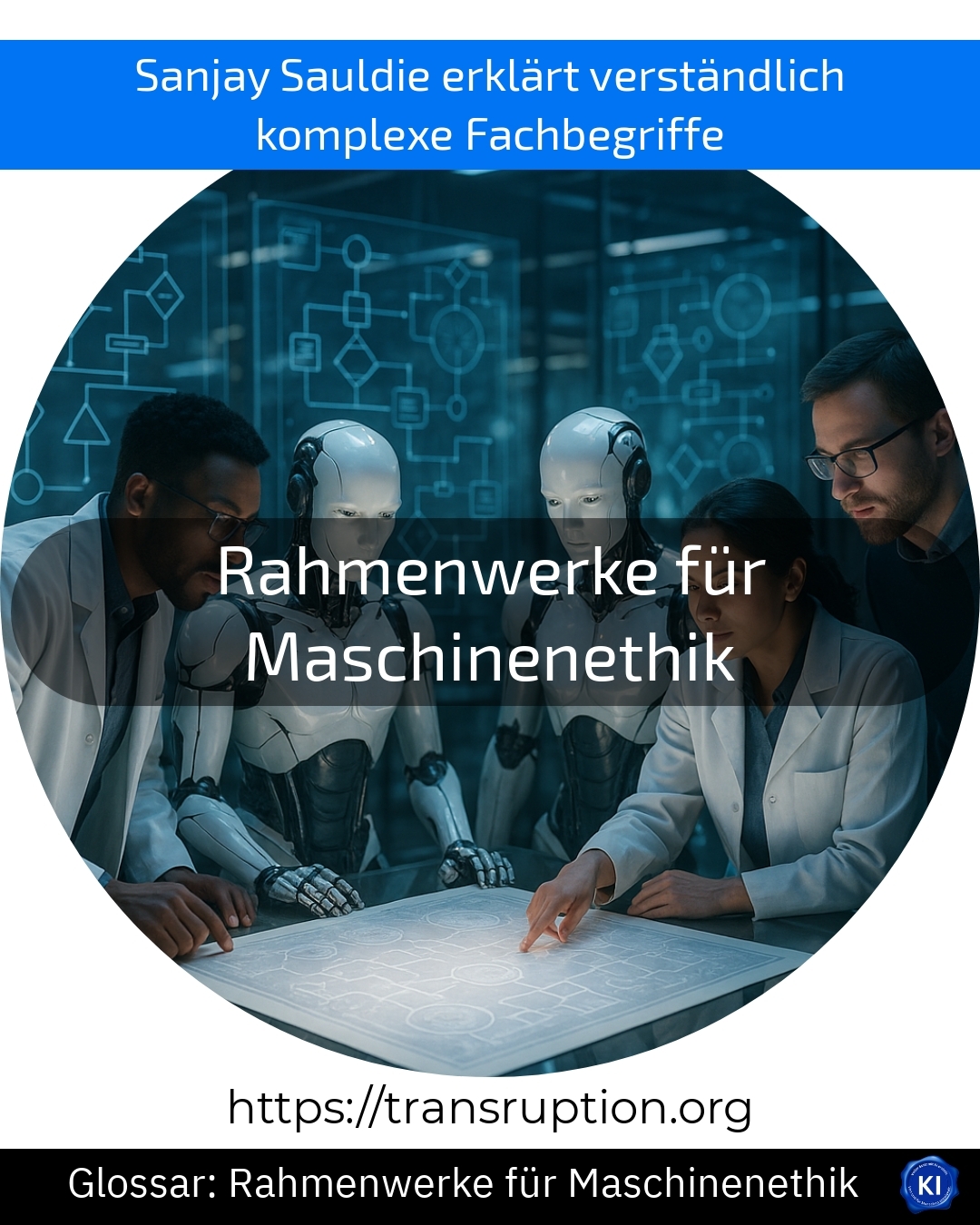The term "frameworks for machine ethics" is particularly at home in the fields of artificial intelligence, robots and digital society. It describes the rules and guidelines that define how machines - especially adaptive or autonomous systems - should act ethically. These frameworks specify which values and principles a machine must take into account when making decisions, such as fairness, safety or data protection.
An illustrative example: Imagine an autonomous car. Thanks to a framework for machine ethics, the software knows how it should react if an accident is unavoidable - for example, whether it should prioritise action to protect passengers or passers-by. Such ethical guidelines ensure that machines not only function technically, but also act responsibly, comprehensibly and in the interests of society.
Frameworks for machine ethics are important for people to build trust in new technologies. Companies use them to ensure that the development of smart robots or AI systems is safe and legally compliant. In this way, these frameworks help to minimise potential risks and use innovations responsibly.















